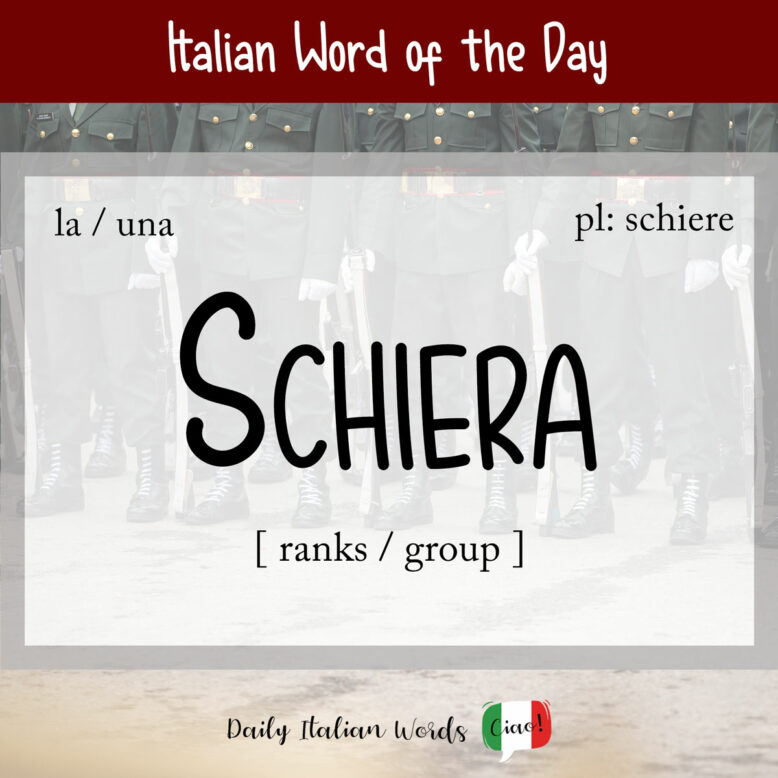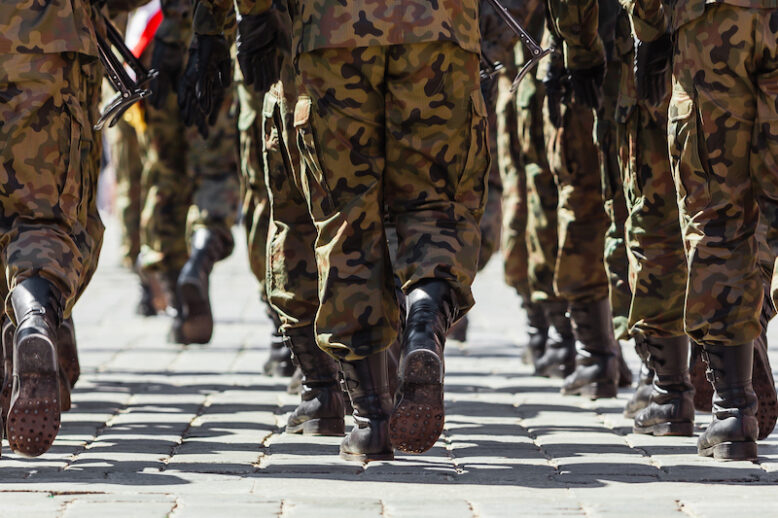Today we’re going to be looking at the Italian word schiera, which can be traced all the way back to the Franconian skara. It entered the language via the ancient French eschiere and the Provençal esquiera.
schiera

Schiera is a feminine noun whose plural form is schiere. It takes the following definite and indefinite articles:
- la schiera
- le schiere
- una schiera
- delle schiere
The original meaning of the word, used in reference to soldiers in the army, is ranks, formation or troops. For example, una schiera di soldati would translate as a line or row of soldiers, wheres schiere nemiche means enemy troops.
Il comandante condurrà la schiera dall’accampamento alla città.
The commander will lead the troops from the camp to the city.

However, the meaning has since expanded to any homogenous group of animate or inanimate things, as in the following examples:
- una schiera di turisti = a flock of tourists
- una schiera di api = a swarm of bees
- una schiera di libri = a hoard of books
- una schiera di ammiratori = a host of admirers
- una schiera di paparazzi = a crowd of paparazzi
Una schiera di formiche si presentò al nostro picnic!
A host of ants showed up at our picnic!
The expression a schiera means in a formation, and is recognisable in the common words case a schiera or villette a schiera, both of which means townhouses or terraced houses. The plural a schiere, on the other hand, is another way of saying in large numbers.
I tifosi si presentarono a schiere in piazza.
The supporters arrived in large numbers in the square.
Heather Broster is a graduate with honours in linguistics from the University of Western Ontario. She is an aspiring polyglot, proficient in English and Italian, as well as Japanese, Welsh, and French to varying degrees of fluency. Originally from Toronto, Heather has resided in various countries, notably Italy for a period of six years. Her primary focus lies in the fields of language acquisition, education, and bilingual instruction.


